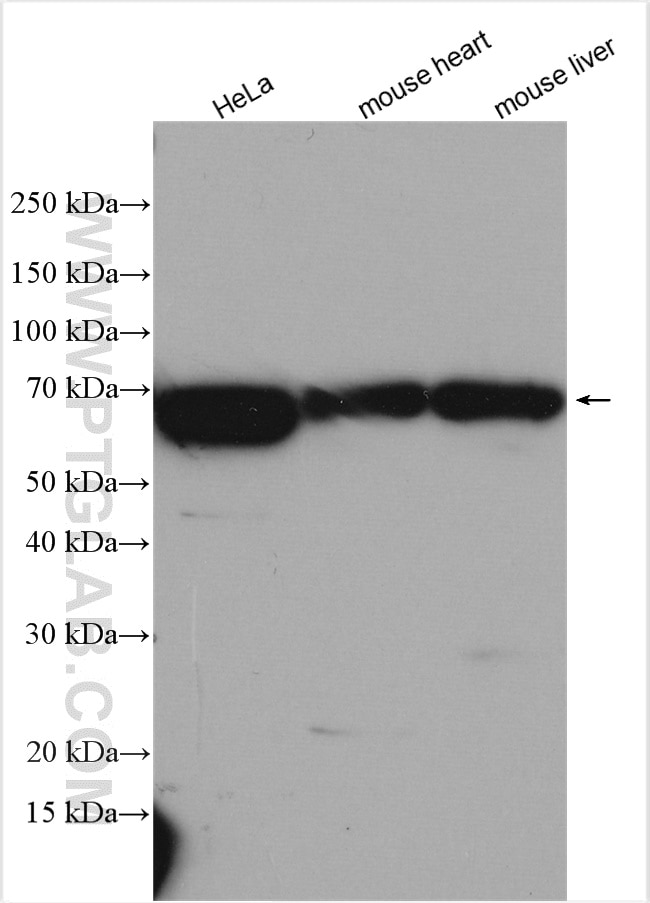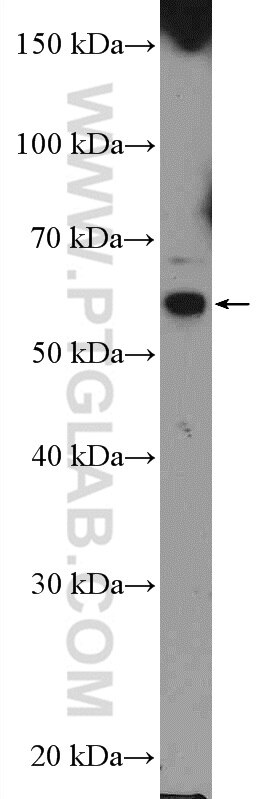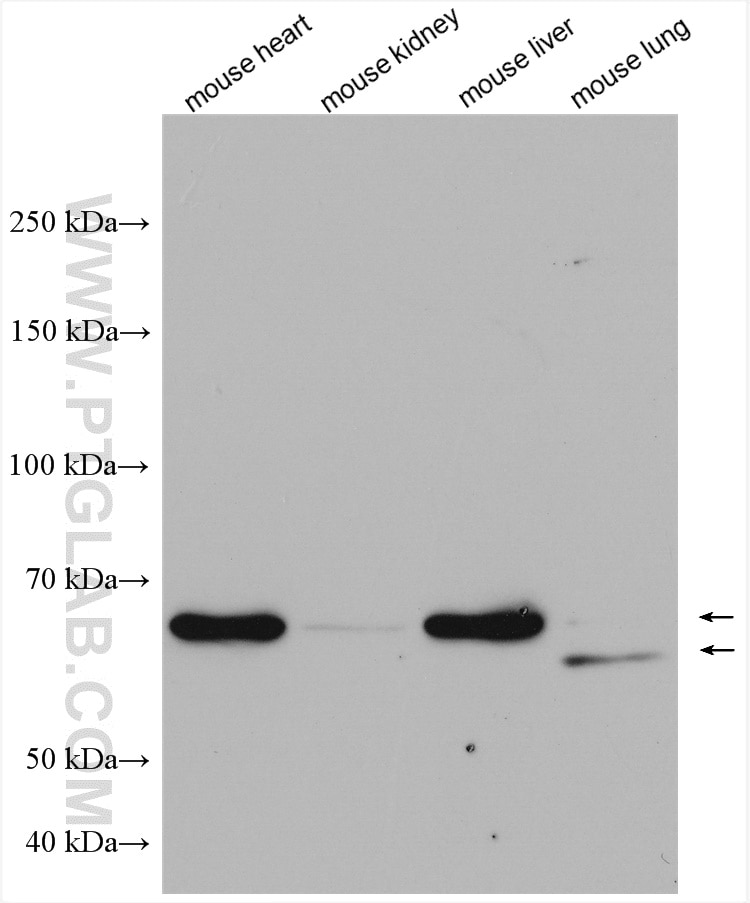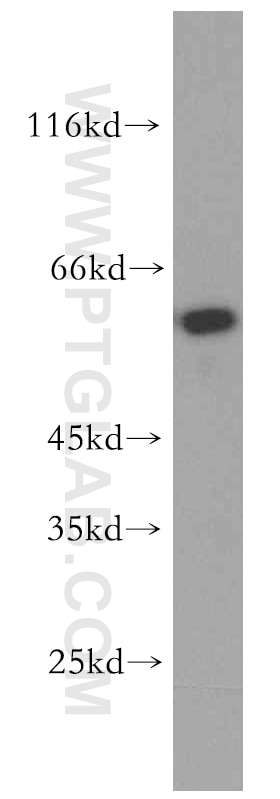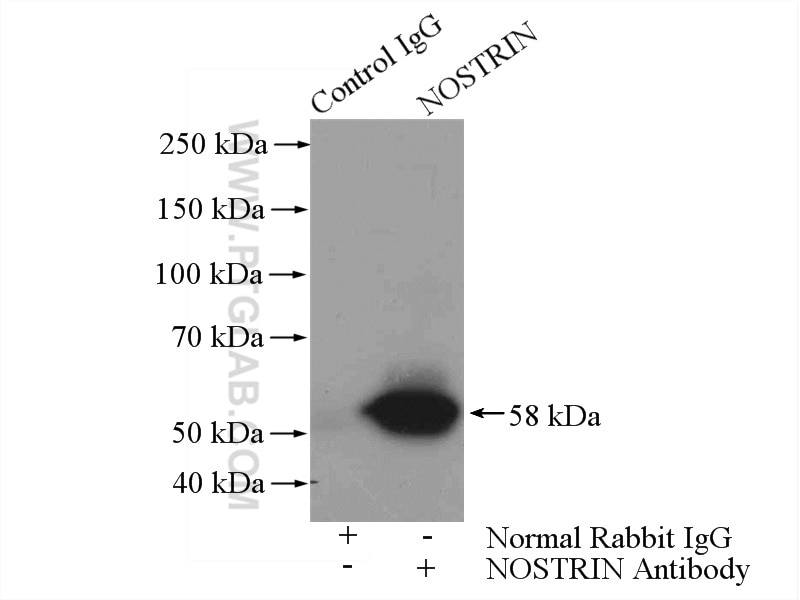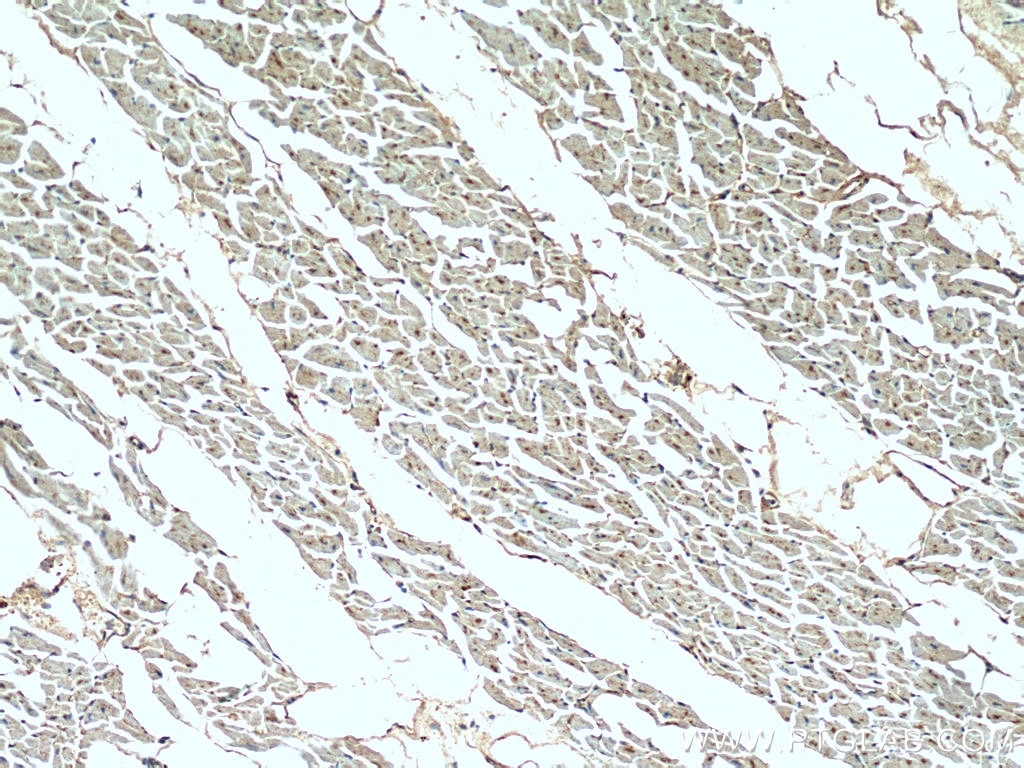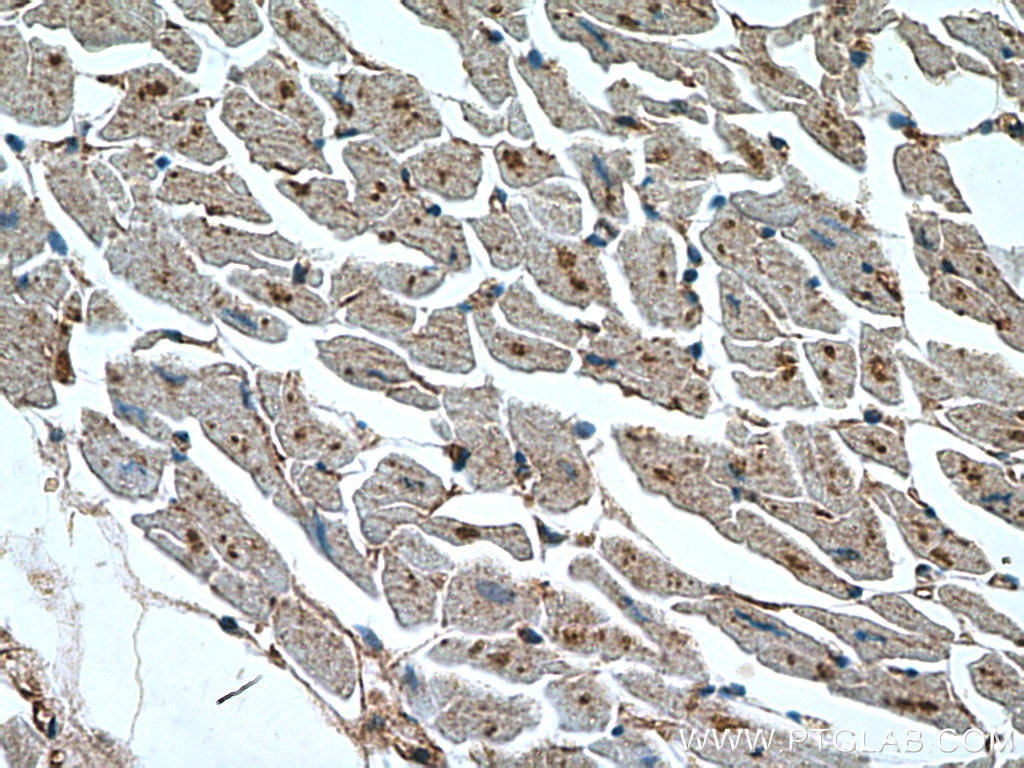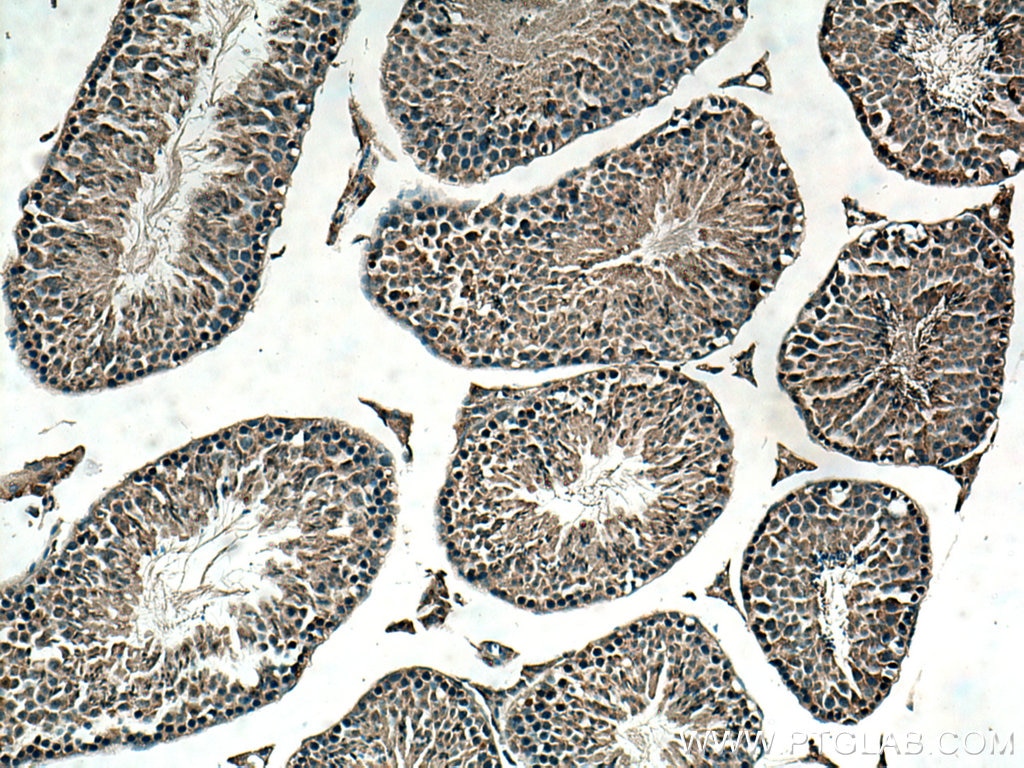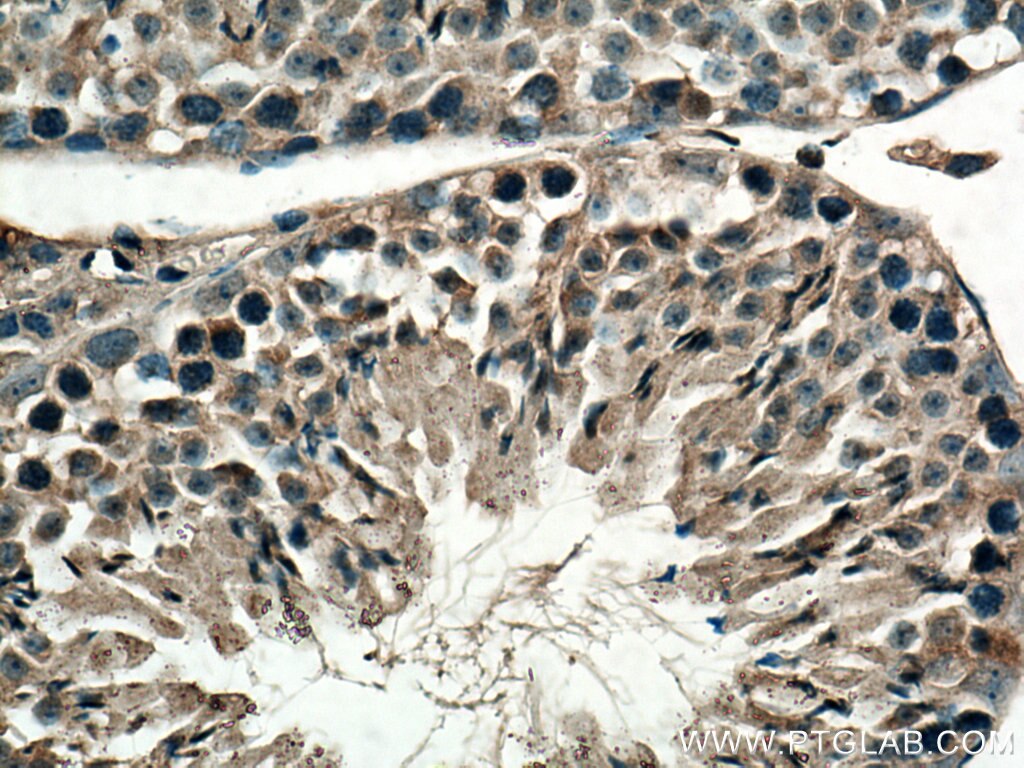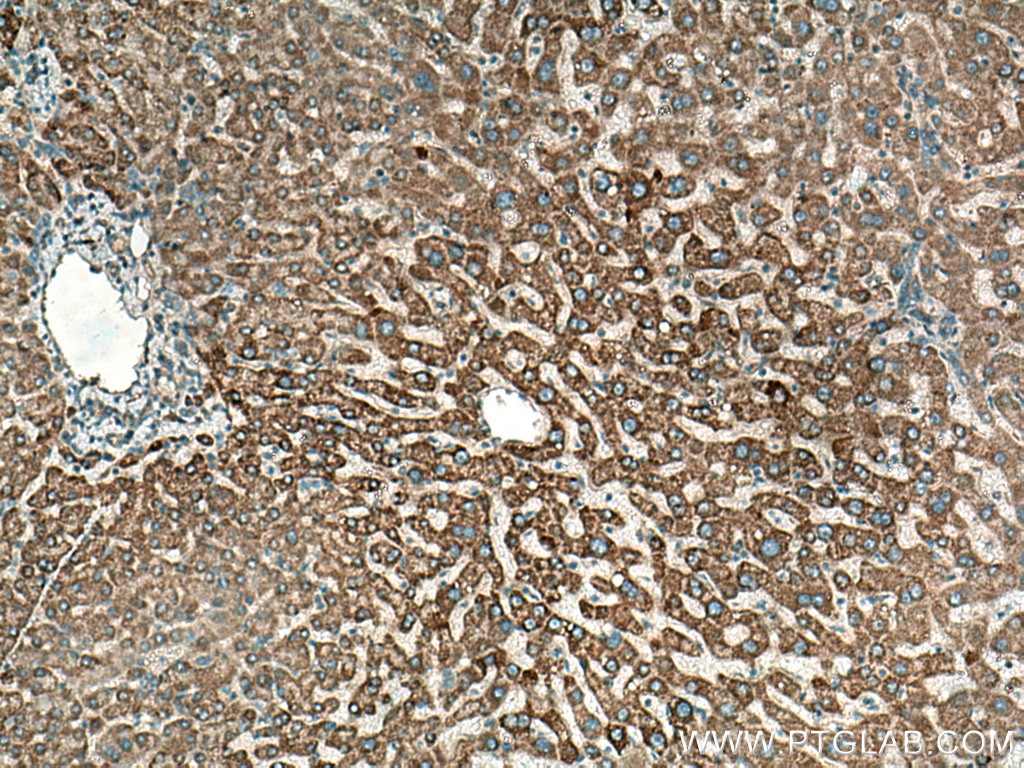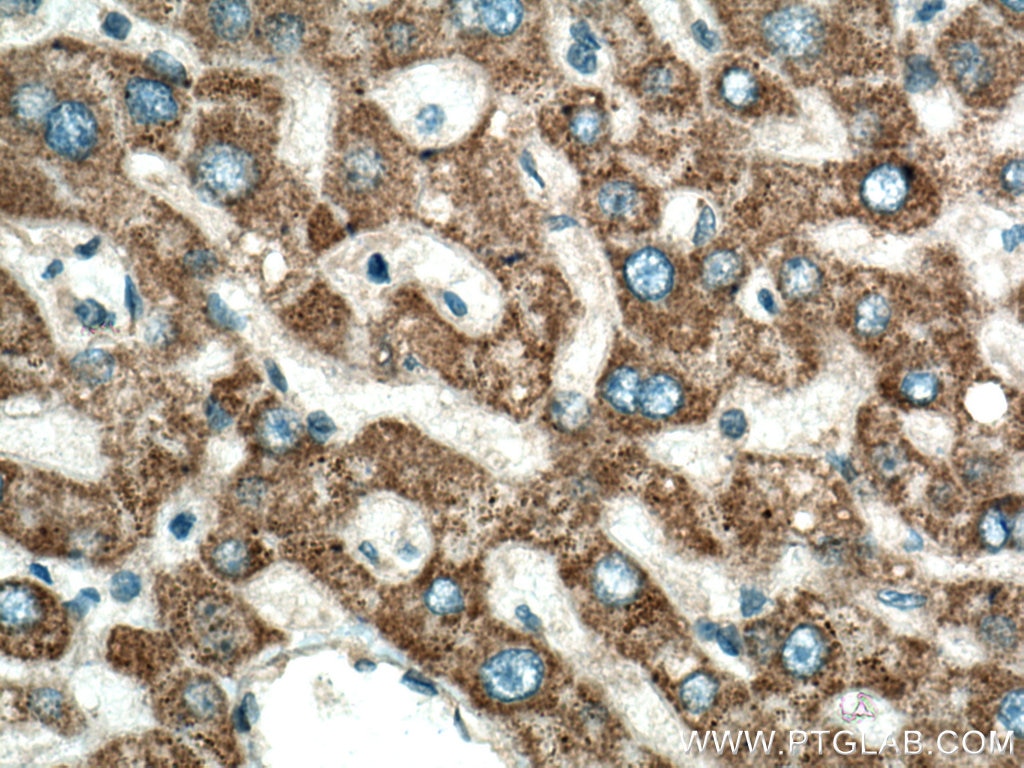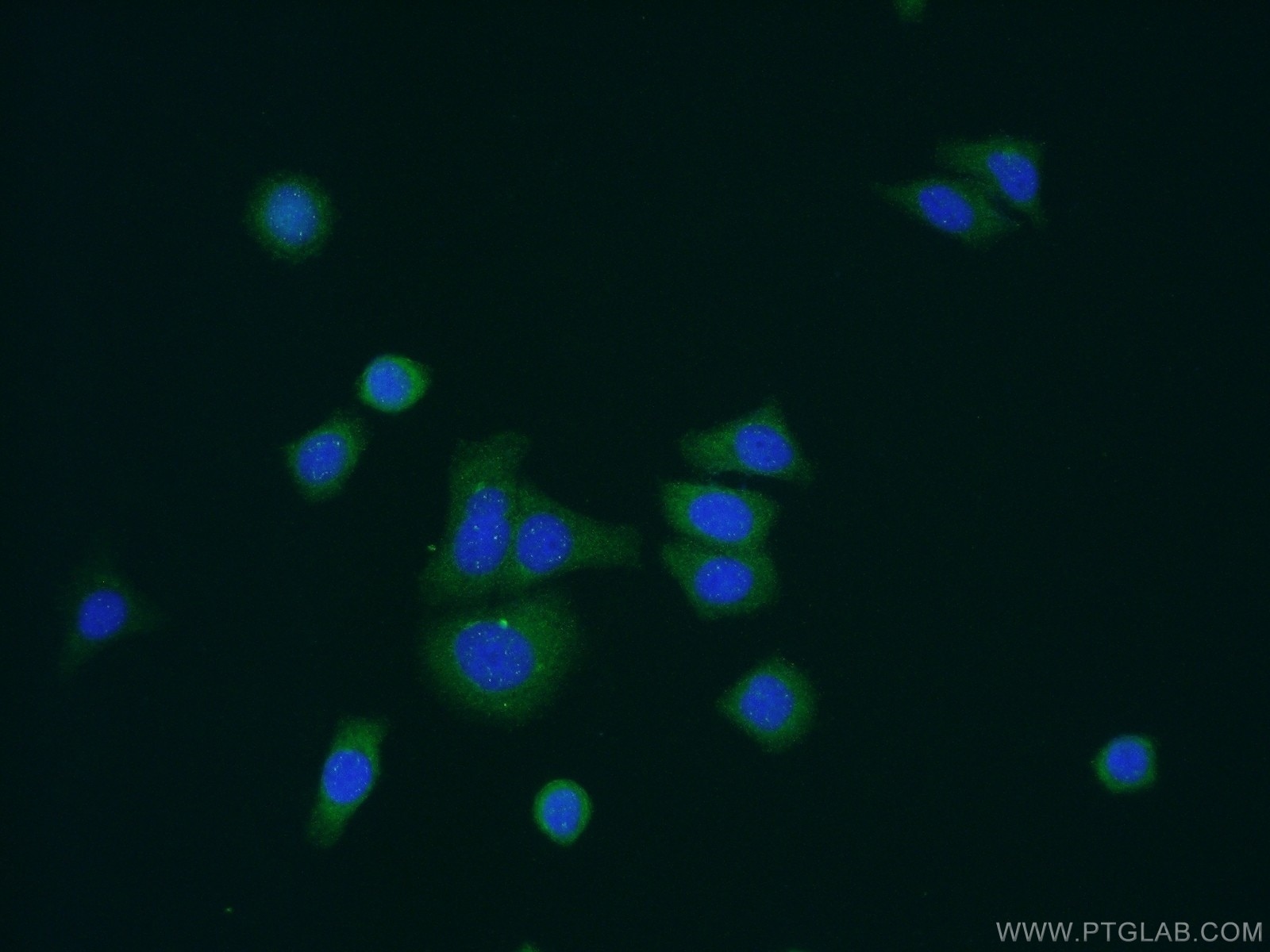Anticorps Polyclonal de lapin anti-NOSTRIN
NOSTRIN Polyclonal Antibody for WB, IP, IF, IHC, ELISA
Hôte / Isotype
Lapin / IgG
Réactivité testée
Humain, souris et plus (1)
Applications
WB, IHC, IF/ICC, IP, ELISA
Conjugaison
Non conjugué
N° de cat : 20116-1-AP
Synonymes
Galerie de données de validation
Applications testées
| Résultats positifs en WB | cellules HeLa, tissu cardiaque de souris, tissu hépatique de souris, tissu placentaire humain, tissu pulmonaire de souris |
| Résultats positifs en IP | tissu placentaire humain |
| Résultats positifs en IHC | tissu cardiaque humain, tissu de cirrhose hépatique humain, tissu testiculaire de souris il est suggéré de démasquer l'antigène avec un tampon de TE buffer pH 9.0; (*) À défaut, 'le démasquage de l'antigène peut être 'effectué avec un tampon citrate pH 6,0. |
| Résultats positifs en IF/ICC | cellules HepG2, |
Dilution recommandée
| Application | Dilution |
|---|---|
| Western Blot (WB) | WB : 1:500-1:2000 |
| Immunoprécipitation (IP) | IP : 0.5-4.0 ug for 1.0-3.0 mg of total protein lysate |
| Immunohistochimie (IHC) | IHC : 1:50-1:500 |
| Immunofluorescence (IF)/ICC | IF/ICC : 1:50-1:500 |
| It is recommended that this reagent should be titrated in each testing system to obtain optimal results. | |
| Sample-dependent, check data in validation data gallery | |
Applications publiées
| WB | See 6 publications below |
| IHC | See 3 publications below |
| IF | See 1 publications below |
Informations sur le produit
20116-1-AP cible NOSTRIN dans les applications de WB, IHC, IF/ICC, IP, ELISA et montre une réactivité avec des échantillons Humain, souris
| Réactivité | Humain, souris |
| Réactivité citée | rat, Humain, souris |
| Hôte / Isotype | Lapin / IgG |
| Clonalité | Polyclonal |
| Type | Anticorps |
| Immunogène | NOSTRIN Protéine recombinante Ag13989 |
| Nom complet | nitric oxide synthase trafficker |
| Masse moléculaire calculée | 506 aa, 58 kDa |
| Poids moléculaire observé | 64 kDa |
| Numéro d’acquisition GenBank | BC014189 |
| Symbole du gène | NOSTRIN |
| Identification du gène (NCBI) | 115677 |
| Conjugaison | Non conjugué |
| Forme | Liquide |
| Méthode de purification | Purification par affinité contre l'antigène |
| Tampon de stockage | PBS avec azoture de sodium à 0,02 % et glycérol à 50 % pH 7,3 |
| Conditions de stockage | Stocker à -20°C. Stable pendant un an après l'expédition. L'aliquotage n'est pas nécessaire pour le stockage à -20oC Les 20ul contiennent 0,1% de BSA. |
Informations générales
NOSTRIN is classically known as an endothelial cell protein that sequesters eNOS and inhibits NO production. NOSTRIN contains a single polypeptide chain of 506-aa residues of 58 kDa with an N-terminal cdc15 domain and a C-terminal SH3 domain. NOSTRIN mRNA is abundant in highly vascularized tissues such as placenta, kidney, lung, and heart, and NOSTRIN protein is expressed in vascular endothelial cells.
Protocole
| Product Specific Protocols | |
|---|---|
| WB protocol for NOSTRIN antibody 20116-1-AP | Download protocol |
| IHC protocol for NOSTRIN antibody 20116-1-AP | Download protocol |
| IF protocol for NOSTRIN antibody 20116-1-AP | Download protocol |
| IP protocol for NOSTRIN antibody 20116-1-AP | Download protocol |
| Standard Protocols | |
|---|---|
| Click here to view our Standard Protocols |
Publications
| Species | Application | Title |
|---|---|---|
Redox Biol Cardioprotection of CAPE-oNO2 against myocardial ischemia/reperfusion induced ROS generation via regulating the SIRT1/eNOS/NF-κB pathway in vivo and in vitro. | ||
J Inflamm Res TNF-α and IL-1β Promote Renal Podocyte Injury in T2DM Rats by Decreasing Glomerular VEGF/eNOS Expression Levels and Altering Hemodynamic Parameters | ||
Naunyn Schmiedebergs Arch Pharmacol Thymoquinone mitigate ischemia-reperfusion-induced liver injury in rats: a pivotal role of nitric oxide signaling pathway. | ||
Mol Med Rep Appropriate timing for hypothermic machine perfusion to preserve livers donated after circulatory death. | ||
Mol Med Rep UBIAD1 expression is associated with cardiac hypertrophy in spontaneously hypertensive rats. | ||
Mol Med Rep Depletion of ubiA prenyltransferase domain containing 1 expression promotes angiotensin II‑induced hypertrophic response in AC16 human myocardial cells via modulating the expression levels of coenzyme Q10 and endothelial nitric oxide synthase. |
